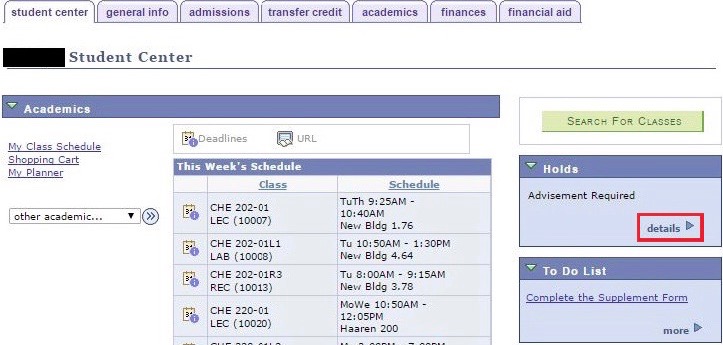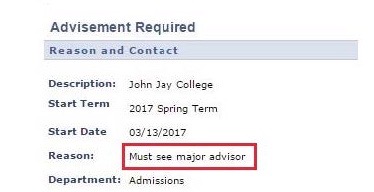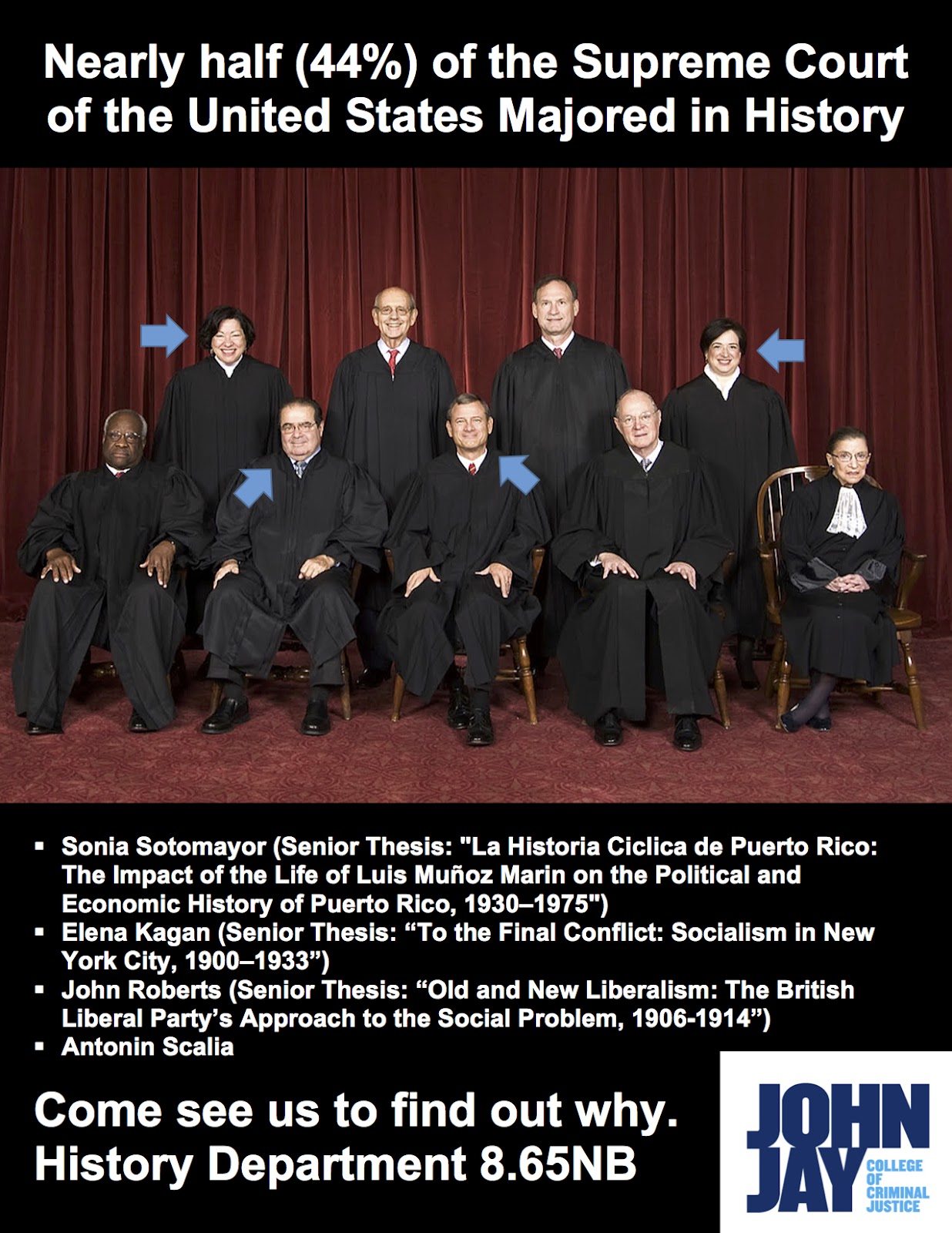Global History Major Resources
Our courses cover a wide range of world regions, time periods, and special topics, and you have the freedom to focus on what you care about. But we won’t just teach you about the past: we’ll also train you to be a historian—to speak effectively, write persuasively, and conduct original research. Writer James Baldwin once said, “People are trapped in history, and history is trapped in them.” Come find out why history matters, to you, today.
Here you will find:
- Key information about your major
- How and when to meet with your major advisor
- Planning tools that will help you track your progress in the major
- Ways to explore career opportunities related to the Global History major
Take a few moments to look at the information below. It will help you plan effectively and avoid surprises during your studies at John Jay. Please visit the History Department's website for information, resources, and opportunities!
Global History Requirements
You are responsible for the major requirements that were in effect when you declared the major. To confirm the requirements you should be following, go to the Undergraduate Bulletin for that academic year. For example, if you declared the Global History major in Fall 2015 or Spring 2016, you would click on the 2015-2016 Undergraduate Bulletin. If you declared the major and then left the College for more than one full semester, you’re responsible for the major requirements in effect when you return, if they have changed.
Below, find the Undergraduate Bulletin that was in effect when you declared the major.
- 2024-2025 Undergraduate Bulletin - Global History
- 2023-2024 Undergraduate Bulletin - Global History
- 2022-2023 Undergraduate Bulletin - Global History
- 2021-2022 Undergraduate Bulletin - Global History
- 2020-2021 Undergraduate Bulletin - Global History
- 2019-2020 Undergraduate Bulletin - Global History
- 2018-2019 Undergraduate Bulletin - Global History
- 2017-2018 Undergraduate Bulletin - Global History
- 2016-2017 Undergraduate Bulletin - Global History
- 2015-2016 Undergraduate Bulletin - Global History
- 2014-2015 Undergraduate Bulletin - Global History
- 2013-2014 Undergraduate Bulletin - Global History (PDF)
- 2012-2013 Undergraduate Bulletin - Global History (PDF)
| Each of the Global History courses below can count toward your major requirements and toward your General Education requirements. However, be sure to refer to the Major Requirements section above. Remember that only one History Department general education course (from the Part Four Category D list) can count toward your major requirements. | |
| World Cultures | Scientific World |
| HIS 203 | HIS 131 |
| HIS 204 | Communications |
| HIS 205 | HIS 144 |
| HIS 208 | 100 Level Justice |
| U.S. Experience | HIS 100 |
| HIS 201 | HIS 106 |
| HIS 202 | 300 Level Justice |
| HIS 214 | HIS 320 |
| HIS 217 | HIS 352 |
| Learning from the Past | HIS 359 |
| AFR 150 | HIS 374 |
| HIS 127 | HIS 375 |
| HIS 244 | |
| LLS 130 | |
| Individual & Society | |
| ART 222 |
Major Advising
Global History major advising is now being done both in person and remotely.
Please email Professor Stephen Russell (srussell@jjay.cuny.edu) to set up whatever kind of appointment works best for you.
Global History majors who need advising during Summer session (June 2 - August 25) 2025 can email Professor Matt Perry (mperry@jjay.cuny.edu).
To help students stay on track for graduation and plan for their careers after graduation, the History Department advisors may place a major hold on sophomores who have earned 45-59 credits. To lift this hold and be able to register for courses, students must meet with a major advisor. This meeting will encourage wise planning and address any questions about the major. How do you know if you have a major hold? Go to CUNYfirst and complete the following steps:
- Check the Holds box of your CUNYfirst Student Center. If "Advisement Required" appears, click on “details.”

- Click on “Advisement Required.”

- See which type of advisement you need. If you must see a major advisor, then make a major advising appointment following the steps preferred by this department.

Plan Ahead: Graduate on Time
The Global History major has several courses that build on each other in a sequence, so it is important to be aware of this and plan accordingly. Keep the following guidelines in mind:
- You will need to take two of the following courses: HIS 203, HIS 204, HIS 205
- Take HIS 240 by either second semester Sophomore year or (at the latest) first semester Junior year, since it is the prerequisite for HIS 300, and HIS 300 is the prerequisite for HIS 425.

- Students must meet the following requirements when selecting Global History electives:
- Students who declare the major in the 2023-2024 academic year or later must take at least three major elective courses at the 300 level (prior to that year, the requirement was at least two at the 300 level)
- At least two from category: U.S. History
- At least two from category: Non-U.S. History
- At least two from category: Premodern History
- No more than two 100 level courses
- Remember that you will need at least a 2.0 GPA in the major and at least an overall 2.0 GPA to graduate.
- DegreeWorks degree audit - Use this online planning tool to track your overall progress toward graduation. You will see which of your general education and major requirements are completed, in progress, or still needed. Refer to the DegreeWorks FAQs to better understand how to use this helpful tool. Note: be sure to confirm the accuracy of your degree audit with a general advisor and major advisor.
- Global History Major Requirement Checklist - Fill out this printable worksheet to keep track of which major requirements you have completed and which ones you still need.
- Sample Four Year Plan - See an example of how you could complete all your degree requirements (major, general education, electives) and graduate in four years! Remember that this sample plan shows just one possible way to combine your requirements. Transfer students in particular should work with advisors to determine a plan that works best for them.
A General Academic Advisor will confirm what general academic requirements you still need, make suggestions about smart course planning that will help you graduate without delays, discuss your interest in adding a minor or second major, inform you about opportunities such as study abroad, discuss general questions and concerns, and make helpful referrals. Visit the Academic Advisement Center's webpage for more information.
Global History and Careers
The Global History major prepares you for a wide range of jobs, and it is an ideal foundation for careers in public service, education, and the law. We have a strong track record in helping our students achieve their goals. Our alumni have entered graduate programs at Columbia, Hunter, Penn State, Northeastern, and Cardozo (to name just a few) in fields that include Law, Library Science, Education, East Asian Studies, and Social Work. They have won fellowships with Teach for America and the New York Teaching Fellows, and they have obtained jobs and internships with the City of New York, the National Archives, and the NYPD. With our small courses, innovative curriculum, and strong academic and career mentoring, you can follow in their footsteps.

If you are interested in exploring career opportunities related to the major, Global History major advisors can offer you helpful advice and perspective.
For additional guidance concerning internships, jobs, and careers, visit John Jay’s Center for Career and Professional Development. CCPD staff are available to meet individually with students and alumni in L72.00 New Building. To request a 45-minute appointment with a CCPD advisor, log on to John Jay Careers Online. 15-minute drop-in sessions are also available Mon-Fri 9 a.m. - 5 p.m. in New Building 72.00. Stop by in person earlier the same day to schedule a drop-in session.
Global History alumni have entered graduate programs at Columbia, Hunter, Penn State, Northeastern, and Cardozo (among others) in fields that include Law, Library Science, Education, East Asian Studies, and Social Work. If you plan to pursue a graduate degree, a good first step is to talk with a Global History major advisor or any Global History faculty member. They can give you helpful advice about researching and applying to programs.
Pre-Law Institute
If you are specifically interested in law school, the Pre-Law Institute offers many resources for law school preparation. John Jay students and alumni who would like to make an appointment with a pre-law advisor may do so either by stopping by the Pre-Law Institute in 8.66 NB, signing up on our advisement page, or emailing pli@jjay.cuny.edu.